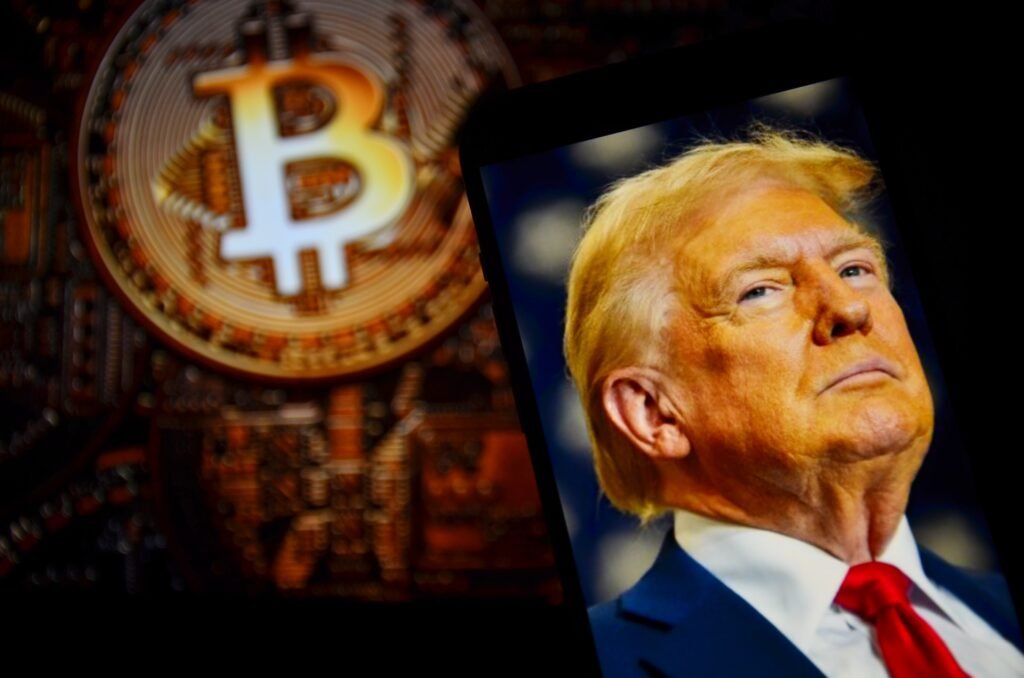TLDR;
- Digital assets are now a top priority for the Trump administration.
- U.S. Backed stablecoins could add $2 trillion in demand for U.S. Treasuries.
- Senate supports a Genius Act bill requiring stablecoins to be fully dollar-backed.
- Over 60,000 supporters urged lawmakers to pass the stablecoin bill.
The Trump administration has officially designated digital assets, particularly stablecoins, as a national priority.
Trump “Fully” Embraces Digital Assets
The announcement came during an interview on Saturday with Scott Bessent, Treasury Secretary and longtime economic advisor to President Trump, who told Bloomberg, “We are going big on digital assets.” This declaration marks a dramatic reversal from the approach of previous administrations.
Bessent further emphasized the strategic importance of stablecoins backed by U.S. dollars or Treasuries, arguing that this move could significantly bolster the dollar’s global standing.
The Trump Administration is going big on digital assets.
Why? Because the previous administration nearly destroyed the industry with its anti-innovation agenda and regulation-by-enforcement approach.
No more.
Digital asset companies deserve regulatory clarity—and that’s… pic.twitter.com/kqYxwWggEm
— Treasury Secretary Scott Bessent (@SecScottBessent) May 23, 2025
GENIUS Act Gains Senate Support
The statement coincides with a wave of bipartisan legislative momentum in Washington. On May 20, the U.S. Senate advanced the GENIUS Act, a comprehensive bill aimed at regulating the issuance and backing of stablecoins. The legislation, introduced by Senator Bill Hagerty, mandates that all stablecoins be backed 1:1 by U.S. dollars or equivalent liquid assets. It also introduces annual audit requirements for issuers with more than $50 billion in capitalization and enforces stricter oversight on foreign entities operating in the American market.
Notably, the midterm vote saw rare bipartisan alignment. 66 senators voted in favor of the bill, including 16 Democrats. Senator Cynthia Lummis praised the bill as “a necessary leap into the financial future,” while Hagerty hailed it as a critical tool for reinforcing the dollar’s dominance and modernizing America’s payments infrastructure.
Despite the growing support, not all lawmakers are on board. Senator Elizabeth Warren criticized the legislation, saying it “fails to address important issues tied to President Trump’s influence over the crypto industry.” Warren voiced concerns about potential loopholes that could allow large tech and financial corporations to issue their own money-like instruments under weak oversight.
Crypto Community Rallies Behind Bill
Nevertheless, the bill has galvanized support from the cryptocurrency community. According to advocacy group Stand With Crypto, more than 60,000 letters were sent to senators urging them to vote in favor of the legislation. Crypto advocates argue that the GENIUS Act provides long-awaited regulatory clarity while enabling innovation and investment in the U.S. digital asset ecosystem.
David Sachs, a close Trump ally and the administration’s special adviser on artificial intelligence and cryptocurrency, echoed Bessent’s optimism in an interview with CNBC on May 22. Sachs predicted that the GENIUS Act will trigger a massive influx of capital into government bonds.
“The demand for Treasuries could increase by trillions of dollars,” Sachs said, citing the bill’s requirement that stablecoins be fully collateralized by sovereign debt or dollars.
That said, the Trump administration’s coordinated push for digital asset regulation appears to be part of a broader strategy to reassert American financial dominance. By bringing crypto firms back onshore and tying stablecoin issuance directly to U.S. government debt, the administration is betting that blockchain-based finance can become an engine of dollar strength rather than a threat to it.
